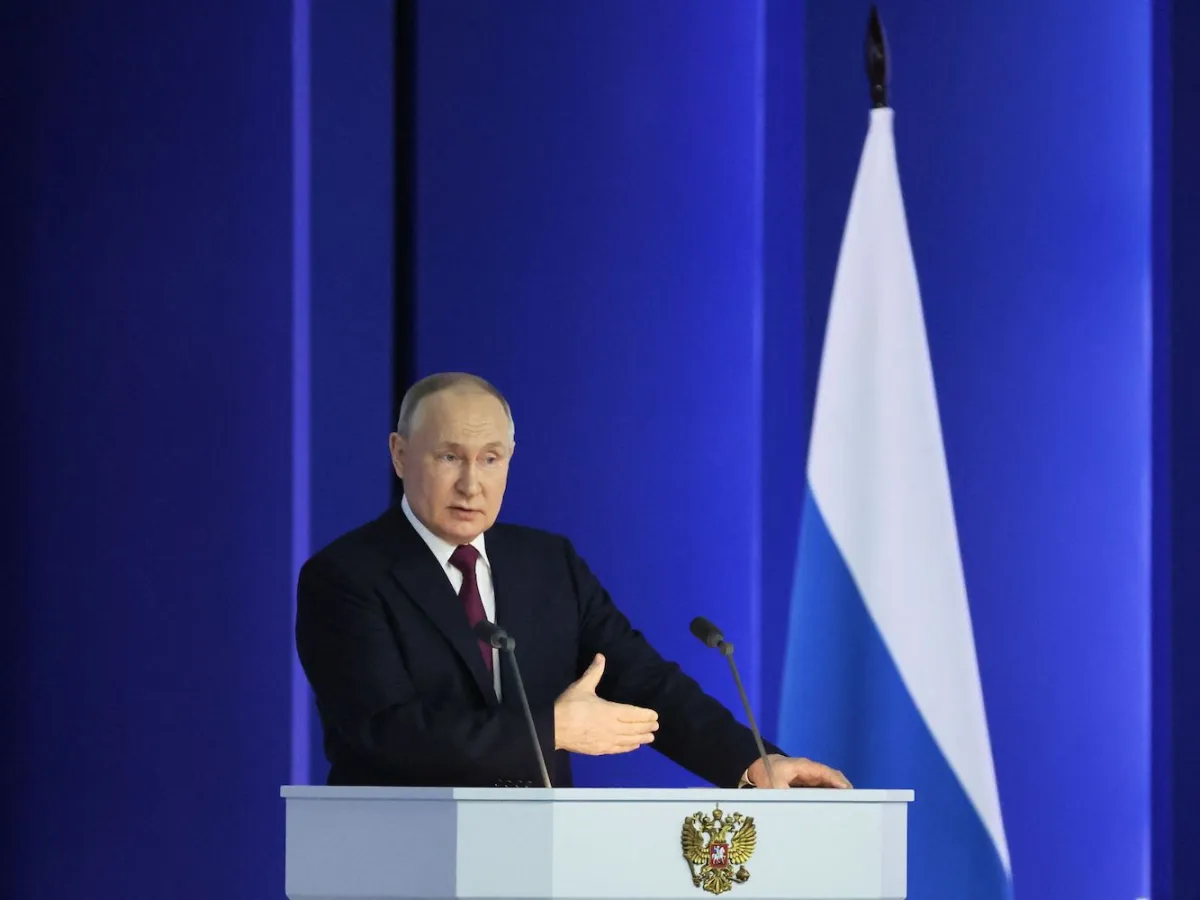In a pivotal moment for Russia and its relations with the West, President Vladimir Putin delivered his annual state of the nation address, marking a significant event in the political calendar of the country. Speaking before the Federal Assembly, which includes both chambers of the Russian parliament, government officials, and other dignitaries, Putin’s speech comes at a critical juncture, just weeks before the presidential elections slated for March 15-17, 2024, in which he is expected to secure a fifth term.
The address, lasting over two hours, was not just a routine political obligation but a strategic communication to both domestic and international audiences. Putin, Russia’s longest-serving leader since the tsarist era, utilized this platform to outline his vision for Russia, touching upon a wide range of topics from domestic policies to foreign relations, and from economic strategies to military capabilities.
Key Highlights from Putin’s Address
1. Domestic Focus with a Dash of Foreign Policy:
Putin’s speech heavily emphasized Russia’s internal affairs, discussing economic development, infrastructure projects, and social welfare programs. However, it was his remarks on foreign policy and military advancements that captured international attention. He reiterated Russia’s stance on the ongoing conflict in Ukraine, portraying it as a defensive measure against Western aggression and asserting the unity and resolve of the Russian people in supporting what he termed a “special military operation.”
2. Nuclear Posturing and Warnings to the West:
A significant portion of the address was dedicated to saber-rattling, with Putin boasting about Russia’s hypersonic weapons and nuclear capabilities. He issued veiled threats to the West, suggesting that any NATO deployment in Ukraine could escalate into a nuclear conflict, a stark reminder of the high stakes involved in the current geopolitical tensions.
3. Economic Resilience and Sanctions:
Despite facing unprecedented international sanctions, Putin claimed that Russia’s economy is resilient, with plans to enhance self-sufficiency and reduce reliance on Western imports. He announced initiatives to support technological innovation and industrial growth, aiming to fortify Russia’s economic sovereignty.
4. Social Initiatives and National Projects:
The Russian leader proposed several social initiatives, including measures to support families, improve healthcare, and increase the minimum wage. These proposals are part of broader national projects aimed at boosting Russia’s demographic development and improving the quality of life for its citizens.
5. Election Forecasts and Political Landscape:
While the upcoming presidential election looms, Putin’s speech did not overtly campaign. Instead, it served as a de facto platform to showcase his leadership and vision for Russia’s future, reinforcing his position ahead of the polls.
Amidst the wide array of topics covered in Putin’s address, a conspicuous silence was noted on certain sensitive issues, most notably the recent death of Alexei Navalny, the Kremlin’s most prominent critic, in prison. Navalny’s demise and the circumstances surrounding it have sparked international outcry and condemnation, highlighting the Kremlin’s harsh stance on dissent and political opposition. Putin’s omission of this topic in his speech reflects the continuing suppression of political dissent in Russia and the government’s reluctance to address concerns regarding human rights and freedom of expression. This silence speaks volumes about the current state of political freedoms in Russia, underlining the challenges faced by those who oppose Putin’s rule.
Implications for International Relations
Putin’s address underscores the deepening rift between Russia and the West, with the former asserting its military prowess and readiness to confront perceived threats. The emphasis on nuclear capabilities and strategic weapons serves as a warning to NATO and the United States, signaling Russia’s unwillingness to back down in the face of sanctions and diplomatic pressures.
As Russia prepares for its presidential elections, Putin’s speech reaffirms his grip on power and his determination to steer the country according to his vision, one that increasingly diverges from Western norms and expectations. The international community, particularly those in Europe and the United States, will be closely watching the developments in Russia, as Putin’s policies and military posturing have far-reaching implications for global security and stability.
Source link
